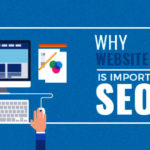Distribution of content is an important part of content marketing. Reaching the right audience online is more complicated than it was in 2010. People filter out messages from brands and as many as 64% of ad blockers say that ads are annoying and intrusive. To top it all, even social media platforms such as Facebook are restricting page posts unless they are paid for.
Marketers need a trustworthy and organic way to reach their target. Influence Marketing provides exactly that.
What is Influencer Marketing?
Influencers are users who are popular online and have good number of followers and user engagement with them. They are looked up to by many people and have the ability to influence opinions. They could be popular YouTubers, Instagram celebrities with following of more than 10,000 of Facebook users with active user engagement.
Influencers have attained the status of celebrity in recent years. They are known world-wide and have a cult following. The most popular YouTuber, PewDiePie, earns an estimated $12 million from ad revenue and product endorsements annually.
Influence Marketing uses this fame of influencers to spread their brand message and content. Influencer marketing is word-of-mouth amplified by social media.
According to Rhythm One’s Influencer Marketing Benchmarks Report marketers get a return of $9.6 for every dollar they spend on Influencer Marketing. This is why leading brands such as Nike and Sprite are taking leverage of influence marketing in their content marketing program.
How Influencer Marketing Powers Content Marketing
Market Research
Influencers are more than just a channel to reach your audience. Influencers are often sought after for product launch, content creation, event management, SEO and market research.
Usually brands spend thousands of dollars on market research, focus groups, surveys and developing buyer personas. Collaborating with an influencer can give added insights into your market along with the data of millions of followers. Since influencers are in touch with their followers on a day to day basis, they are in a better position to evaluate what content will work.
Include Influencers early on in the content marketing strategy and take the benefit of their experience.
Fresh Perspective
Unlike traditional marketing, marketers have to let go of control over the messaging in influencer marketing. Influencers don’t like to spam their followers with salesy posts and they usually use the product in the context of their audience to maintain integrity.
Content by internal teams often tends to follow the same angle and messaging. Influencers can lend a fresh perspective to your products. For example, each influencer can use the same dress in different ways for different occasions.
Targeted Reach
Social media influencers have millions of followers all over the world. However the most attractive fact for marketers is that they have a following of targeted followers. A beauty and cosmetics brand can easily find fashion bloggers of targeted ethnicity to partner with. This gives them instant reach to a highly targeted following which would have taken them years to develop on their own.
Influencer marketing is especially useful for companies that want to target a niche market.
Trust
People are averse to advertising and block out messages from sources they do not identify with. According to a January 2015 Ipsos study, 96% of people feel that the advertising industry lacks integrity.
On the other hand, influencers are trusted source of information and entertainment for their followers. They share a relation of authenticity and friendship with their followers. This is why influencer marketing is so powerful compared to any other content delivery channel.
Branding
Partnering with the right influencer is a win-win for both the brand and the influencer. Brands that are a natural fit with the influencer are easily accepted in the minds of followers. With repeated messaging, followers who already identify with the influencers also begin to identify with the brand sub-consciously.
On the other hand a strong brand also leads to stronger branding and authority for the influencer.
Some Helpful Tips
68% of marketers consider finding relevant influencers their largest influencer marketing challenge. Following points would help when you want to evaluate an influencer.
1) Find influencers in your niche area and who share your brand values. Partnering with wrong candidates will only confuse your online branding
2) There are many tools available to evaluate and find your perfect match. Some of them are Traackr, Little Bird, BuzzSumo, Keyhole
3) There are plenty of options to choose from today. Keep looking till you find an influencer who is passionate about your brands and wants to work with you in the long term
4) Larger following is not always better. User engagement and activity are also important metrics to be considered. Sometimes, influencers lose the personal touch with growing number. A following of 10K to 100,000 is ideal for most brands.
5) Always give your influencer the freedom of content. Pushing your product will only spoil your brand and your partner’s as well. The best influencer marketing campaigns are very organic and do not look like advertising.







